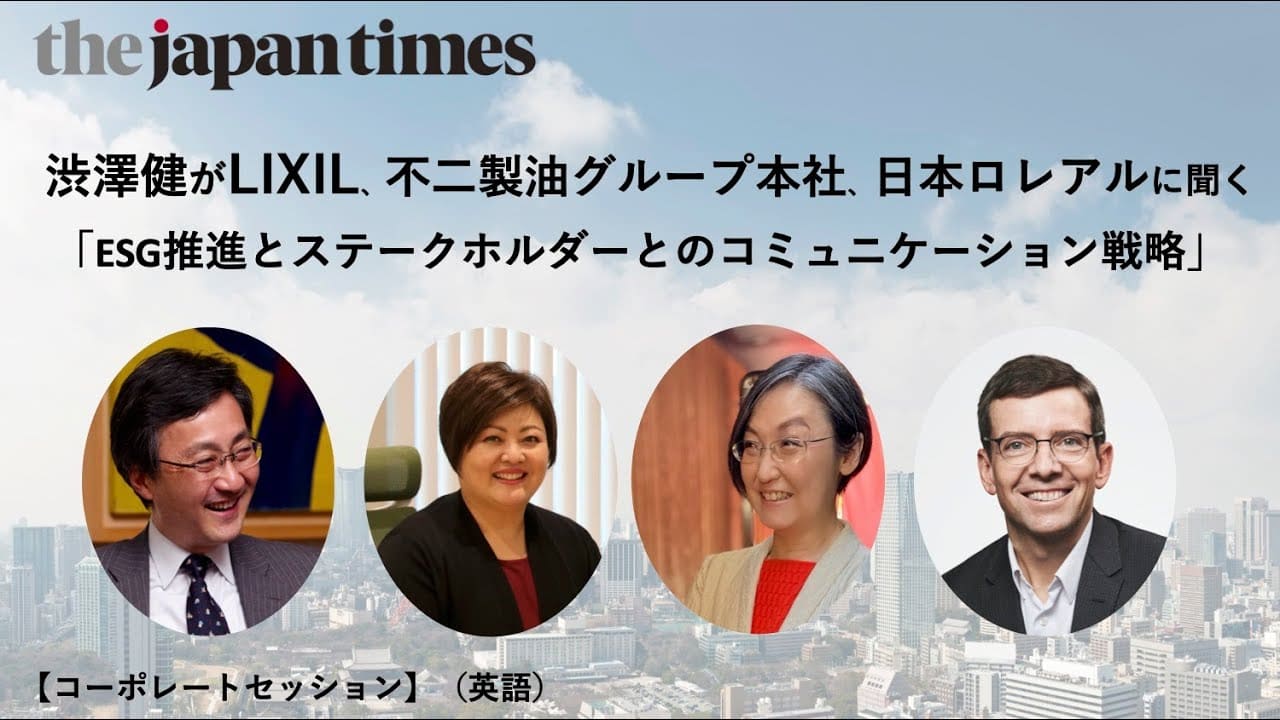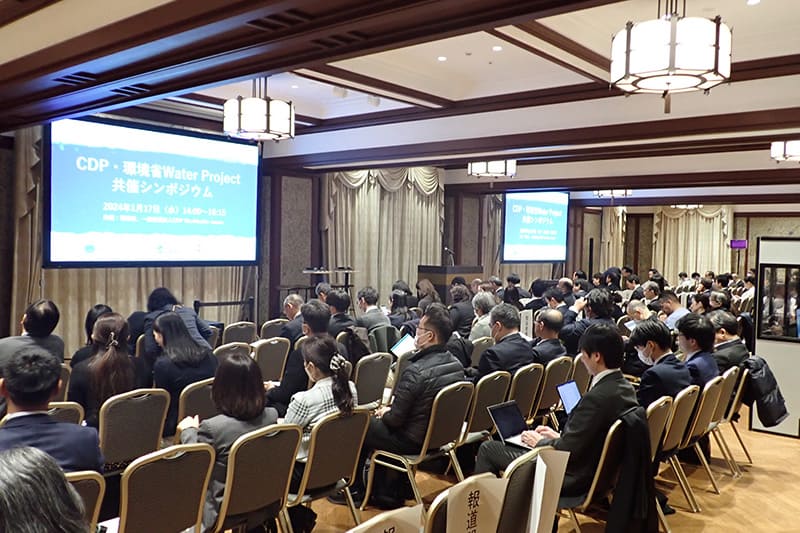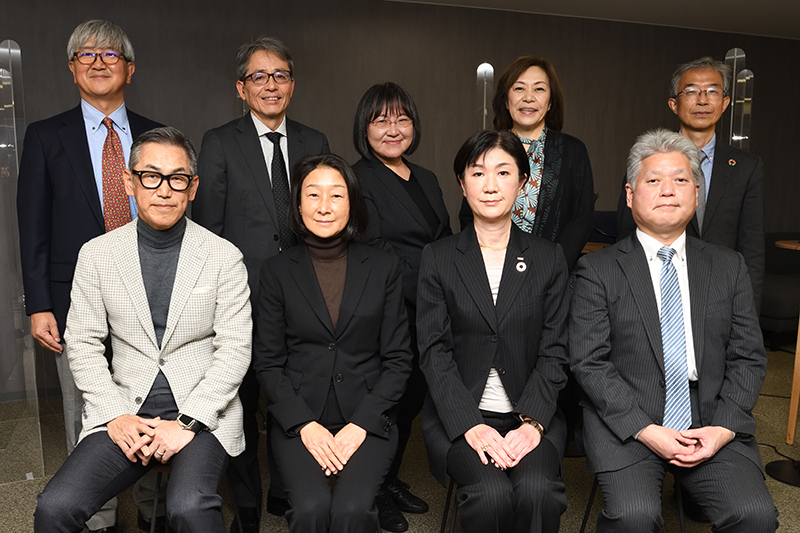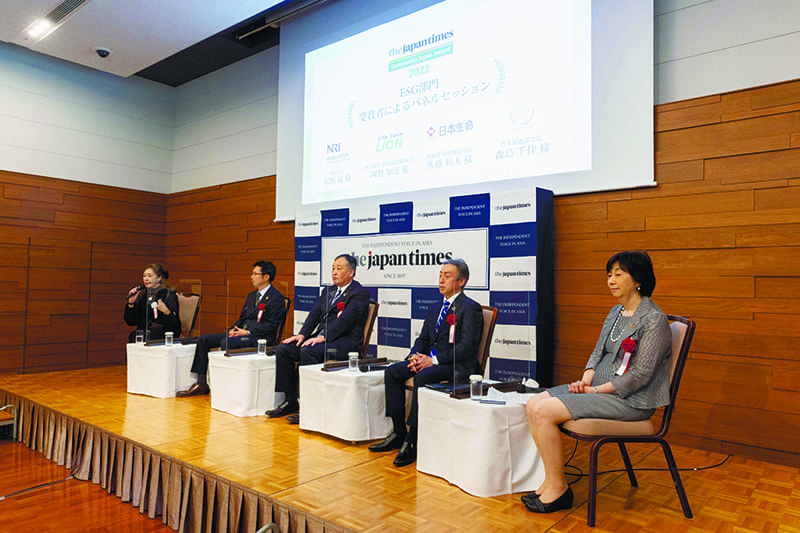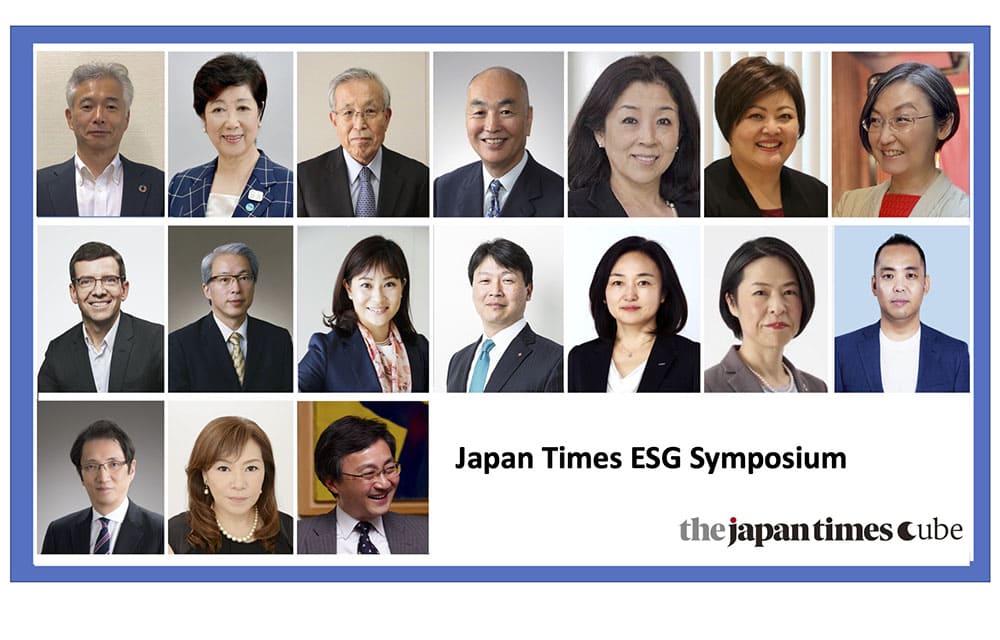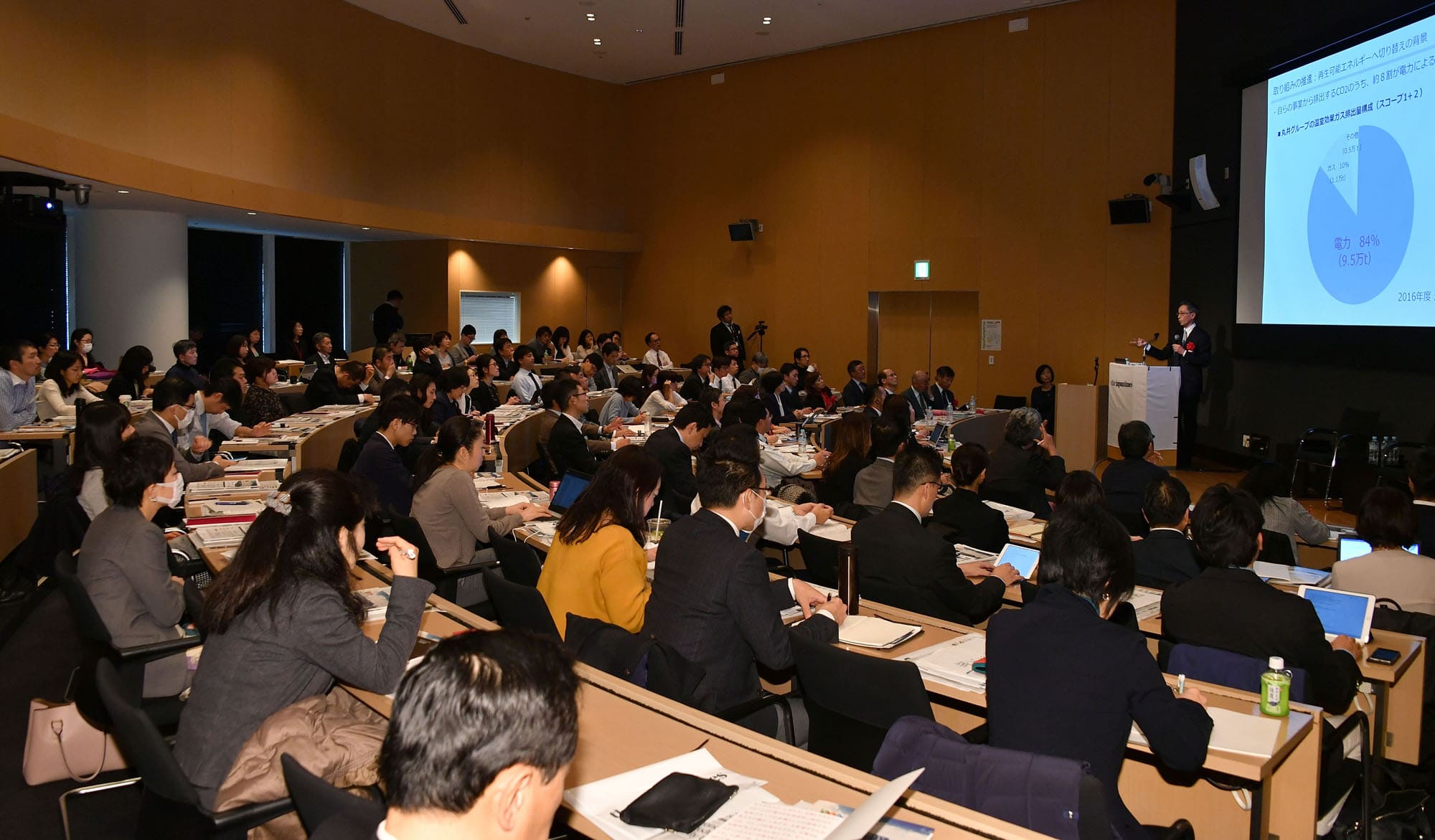May 29, 2021
Japan Times ESG Symposium: Leading for change
Contributing writer
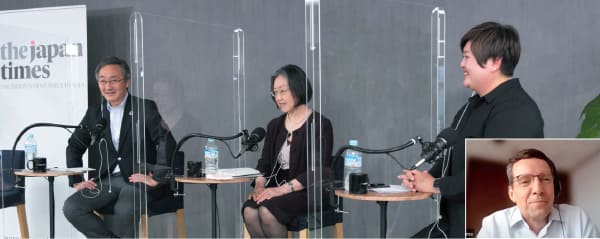
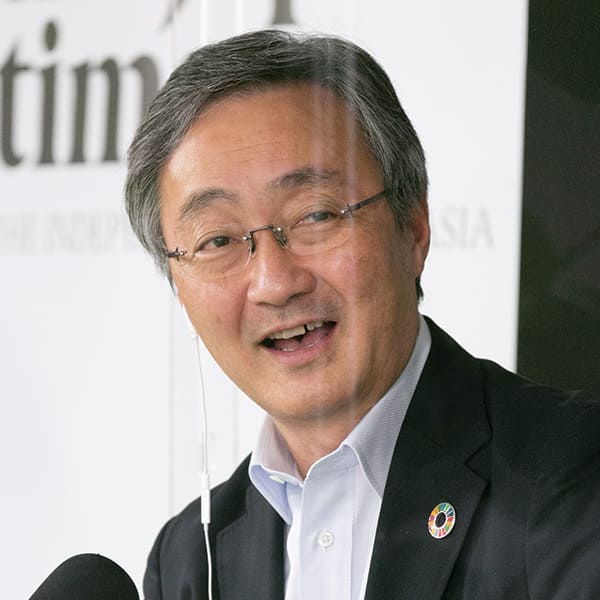
COMMONS ASSET MANAGEMENT, INC. EXECUTIVE CHAIRMAN AND ESG CHIEF EXECUTIVE OFFICER
The Japan Times continued its ESG programming with the ESG Symposium on May 13. The event brought together Tokyo business leaders in a series of panel discussions, both in English and in Japanese. Led by moderator Ken Shibusawa, the English-speaking panel discussed the environmental, social and corporate governance efforts within each leader’s organization. Joining him were leaders from L’Oreal Japan, Fuji Oil Holdings and Lixil.
The ESG programming of The Japan Times has included the ESG Roundtable as well as Sustainable Japan, a series of interviews and events exploring different aspects of sustainability. The series has often revealed the good intentions and long efforts of corporate officers. From home-building to investment banking, many of Japan’s corporate leaders are actively seeking dramatic change that goes far beyond government requirements. While corporations in other countries may be reluctant participants or even outright opponents of ESG efforts, in Japan companies are ESG’s biggest proponents.
Slow build, big results
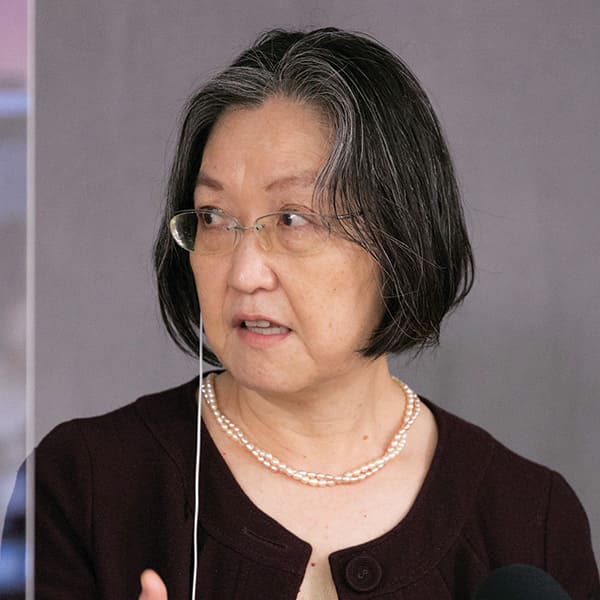
FUJI OIL HOLDINGS INC., ASSISTANT TO CEO
The surprising ESG consensus of Japanese corporations didn’t happen overnight. Like all change in Japan, it was built slowly through the efforts of far-sighted corporate officers.
One of those visionaries was symposium panel member Mariko Kawaguchi, executive advisor to the CEO at Fuji Oil, a major producer of plant-based food oils and industrial chocolate. As moderator Shibusawa said, “You were involved with ESG before the word was even invented!” A modest, bright-eyed female leader, Kawaguchi described her 30 years of experience working in what was once simply called “sustainability” but is now the broader “ESG.”
“I noticed that an ESG or CSR department in a company isn’t good enough,” she said, using the acronym for corporate social responsibility. “The most important component of ESG is the consumers. If you produce some eco-friendly product and the consumers won’t buy (it) because it is 10% more expensive, then the company won’t provide it anymore … and the investors will no longer focus on that issue. If the consumers change their attitude … the companies will be happy to produce those products.”
A new demand for change
Luckily, the attitudes of consumers have indeed shifted. A 2020 global survey conducted by the IBM Institute for Business Value polled 18,980 consumers in 28 countries and found encouraging results. Nearly 6 in 10 were willing to change their shopping habits to reduce their environmental impact. Nearly 8 in 10 respondents indicated sustainability was important for them.
Such shifts have finally allowed Kawaguchi to drive lasting change within Fuji Oil. Sharing slides that illustrated the company’s methods, she described an organization that was examining every aspect of its core business through the lens of sustainability and social impact. Supply chains now work with local NGOs to combat child labor and unfair labor practices. Palm oil buyers monitor deforestation via satellite. Even more interestingly, all of this is being done by a business-to-business company, where badges and credentials are one step removed from consumers. It seems even B2B companies can thrive when ESG becomes part of their purpose.
Purpose as a unifier
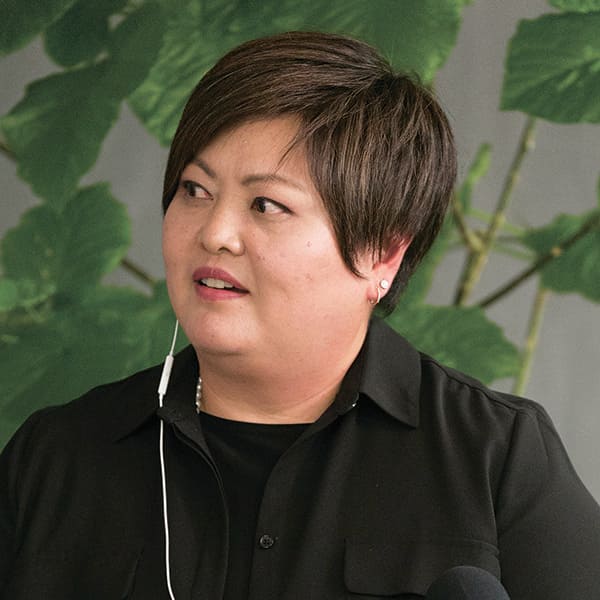
LIXIL CORPORATION, DIRECTOR, EXECUTIVE VICE PRESIDENT, CHIEF PEOPLE OFFICER
Purpose was a big part of Jin Montesano’s story, too. The second panelist is currently a Executive Officer in charge of Corporate Responsibility at Lixil, and is an example of the newest generation of corporate leaders whose energy and enthusiasm are undeniable. In vibrant, American-accented English, Montesano deferred to Kawaguchi, referring to herself as a “novice.” But what she shared proved the label far too modest.
“Lixil came together as a jumble of M&As. We were forced to reckon with our purpose? What is our role in society?” To find out, Montesano first sought to define the common ground of the five merged companies. “My background is a communications and government relations professional. My job is to make things clearer, simpler, more articulate. When I arrived and found the situation in 2014, I said: ‘I’m not going to do what I usually do. I’m not going to write a beautiful script, a long-form narrative, and help everybody use this as a way to talk about the company.’ Instead, I decided to go on a journey to discover ‘What makes us tick?’ … I did a series of workshops to discover ‘What is the beating heart of this company?’”
The outcome of this systematic soul-searching was a unique ESG strategy, one that goes far beyond internal practices. Investing in R&D, Lixil made two ambitious goals: global sanitation and water conservation. By innovating shower heads, toilets and other home components, Lixil’s efforts were multiplied, with ESG goals being achieved in every Lixil consumer’s home. “Ninety percent of our environmental footprint is generated by the Lixil products in use. These are long-durable consumer goods, and they create a massive impact … a billion people use our products every day.” The final pillar of Lixil’s strategy was diversity and inclusion. To Montesano, the logic of such efforts seems self-apparent: “If our organization doesn’t reflect the communities we are serving, then we will not be as successful.”
A more beautiful world

NIHON L’OREAL K.K., PRESIDENT AND REPRESENTATIVE DIRECTOR (ONLINE PARTICIPATION)
The third panelist was Jerome Bruhat, president of L’Oreal Japan. He explained happily, “I work at a company that declared that companies must give equal importance to financial results and to social and environmental impact.” Unlike the pioneering work of Montesano and Kawaguchi, his mission over the past years wasn’t changing a traditional company. “I am in a position of applying a global strategy and finding a way to make it relevant for the Japanese environment.”
He explained that his efforts all flow from a simple but profound philosophical statement: “For L’Oreal, we connect the goals of planet protection and social protection. There is no difference or separation between them.” With this understood, the L’Oreal team chose gender equality and climate action as the main ESG goals for Japan.
While this philosophy is interesting, it is the specific, ongoing tactics of L’Oreal that are impressive. Bruhat’s slides detailed pillars, programs and achievements that were integrated throughout every aspect of L’Oreal Japan’s operations. Carbon neutrality would be achieved by 2022. An ongoing professional training program for Japanese single mothers has already empowered hundreds of now-working women. A fellowship for female scientists is putting the spotlight on Japanese female researchers, while the Women’s Empowerment Advisory Board is in place for governance. Asked drill-down questions from an impressed Shibusawa, Bruhat’s enthusiasm only grew. “We switched to green electricity at all our sites: office, research, facilities — all of them. Also, our Japanese factory must use warm water, which is very energy-intensive. But by having the right technology, by investing a few million euros, you are able to have carbon-neutral boilers.”
ESG: Finding talent, giving purpose
Find talent, allow freedom
Bruhat also raised the same issue that Montesano had raised: purpose. Instead of discovering it within the company, he outlined the benefits of purpose for talent recruitment. “I am amazed at the generation change. Now almost everyone we interview will ask us, ‘What are you doing to contribute to the community?’” Beyond their operational efforts, L’Oreal allows employees to also answer this question themselves. “We have what we call a Citizen Day, or days when people can participate with activities. … I myself was cleaning rivers; some other people (visited) elderly homes. These activities were organized by the company, but actually inspired by many ideas of the employees themselves. They were so proud that the company was giving them the frame, the time and the resources to engage with society.”
Today many people choose the brands they buy and the meishi cards they carry based on ESG efforts. The symposium panelists made clear that some leaders are listening; those who make profit and purpose inseparable will see success in both.

